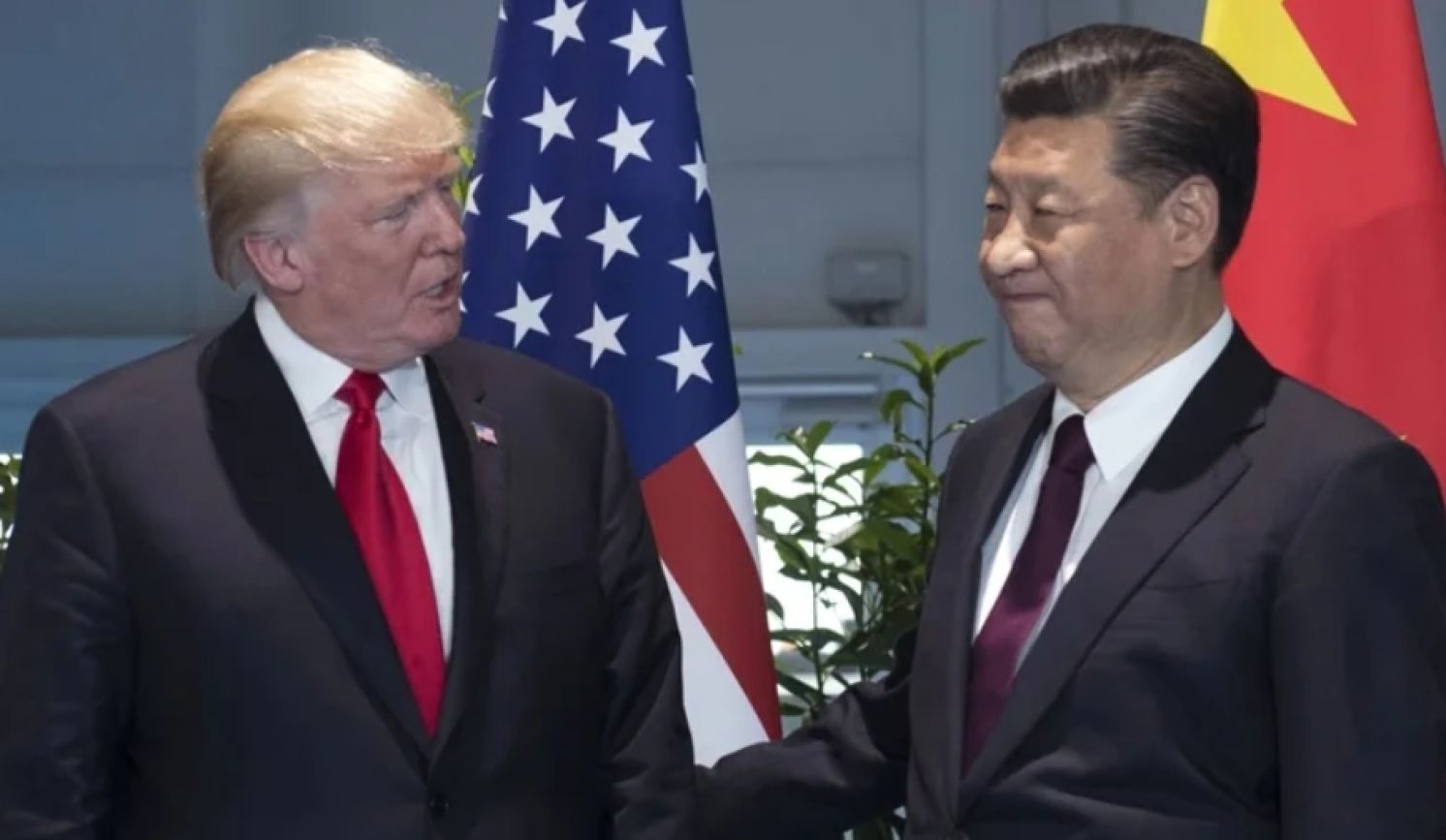
Did Xi Promise Not to Invade Taiwan?
Want Daily Editorial, August 20, 2025
During his summit with Russian President Vladimir Putin, President Donald Trump of the United States told the media that Chinese President Xi Jinping had told him, “As long as you are president, I will never attack Taiwan.” The context in which Mr. Xi made this statement remains unclear, and whether it constitutes a promise to Trump is open to interpretation. However, Taiwan must remain vigilant: as U.S. president, Mr. Trump would not fabricate such remarks, and as China’s leader, Mr. Xi would not casually make pledges on the Taiwan issue.
This was not the first time that Mr. Trump made similar comments. In late 2024, he declared that while China would eventually take action against Taiwan, Mr. Xi would not resort to force as long as Mr. Trump was president. U.S. Secretary of Defense Pete Hegseth reiterated this point at this year’s Shangri-La Dialogue in Singapore. Yet these words reflect only Mr. Trump’s personal conviction. His position of influence, diplomatic maneuvering, and personal rapport with Mr. Xi may shape Mr. Xi’s calculations, but they cannot be regarded as an official Chinese commitment or guarantee.
Mr. Trump’s diplomacy bears a distinctly personal imprint. His ambition is to secure a Nobel Peace Prize, rivaling former President Barack Obama. He makes no effort to conceal this intent, even directly calling Minister of Finance Jens Stoltenberg of Norway to lobby his case. Mr. Trump highlights his personal friendship with Mr. Xi while avoiding explicit positions on Taiwan, refusing to issue security assurances comparable to those made by former President Biden, and even denying President Lai Ching-te a transit stop in New York. This reflects, to some extent, his intention to reduce confrontation and expand cooperation with Mr. Xi.
On his way to Alaska for a meeting with Mr. Putin, Mr. Trump reiterated in an interview with Fox News that there would be no conflict in the Taiwan Strait during his presidency. What differed this time was his insistence that Mr. Xi had personally told him this, adding that Mr. Xi described himself and China as “very patient.” Mr. Trump’s clear and complete account inevitably invites interpretation as an endorsement from Mr. Xi.
When asked about Mr. Trump’s remarks, spokesperson Mao Ning of mainland China’s Ministry of Foreign Affairs replied that the Taiwan issue is purely China’s internal affair, and its resolution is a matter for the Chinese people. She stressed China’s utmost sincerity and effort toward peaceful reunification but underscored that no force would be allowed to separate Taiwan from China. Out of diplomatic courtesy and respect for Mr. Trump, Beijing responded tactfully to his sensitive remarks—upholding its stance against external interference while reiterating its vision of peaceful reunification, aligning positively with Mr. Trump’s claim that Mr. Xi would not use force against Taiwan.
Mr. Trump often boasts of his extraordinary friendship with Mr. Xi and their frequent communications. Yet, based on available official records, since assuming office this year Mr. Trump and Mr. Xi have only spoken once—by phone in early June—when Mr. Xi warned that “the United States should handle the Taiwan issue prudently to avoid a handful of separatists dragging China and the United States into confrontation.” Under such circumstances, it is unlikely Mr. Xi would assure Mr. Trump he would never use force against Taiwan. This suggests the two leaders may have engaged in deeper dialogue on Taiwan through other channels or venues.
Since taking office, Mr. Trump’s top priorities have been securing a U.S.-China trade deal and holding a Trump-Xi summit. He has kept his distance from the Taiwan issue, while the decline of anti-China, pro-Taiwan hawkish forces in Washington has further weakened Taiwan’s weight in triangular U.S.-China-Taiwan relations, reducing it to a bargaining chip. It is hard to imagine Mr. Trump firmly demanding that Mr. Xi renounce the use of force. Mr. Xi, moreover, has no reason to deviate from the declaration he made at the 20th National Party Congress: “We will work with the greatest sincerity and utmost effort for peaceful reunification, but we will never renounce the use of force, and we reserve the option of taking all necessary measures.”
Given current U.S.-China-Taiwan dynamics, global geopolitics, and China’s development needs, peaceful reunification remains Beijing’s top principle. Applying “gray zone” tactics short of war to pressure Taiwan into submission is the preferred approach. Military reunification is not China’s present policy choice. Nevertheless, Mr. Xi may have seized the opportunity to extend goodwill toward Trump by signaling no intent to use force against Taiwan.
Both Mr. Xi and Mr. Trump have broader political agendas and objectives, and neither wants the Taiwan issue to obstruct U.S.-China relations. But for Mr. Xi to make a significant concession on this core-of-the-core issue would require certain conditions. A more plausible scenario is that the two sides reached some form of tacit understanding, with Mr. Xi pledging to refrain from military action while Mr. Trump offered reciprocal assurances.
Whether or not a secret Trump-Xi agreement exists, Taiwan has, over recent years, relied excessively on “leaning on the U.S. to oppose China,” thereby forfeiting strategic initiative. Confronted with worsening U.S.-Taiwan relations and rising tensions in the Taiwan Strait, the Lai administration cannot pin its hopes on Mr. Trump losing next year’s midterms and Democrats returning in 2028. Instead, it must recalibrate cross-Strait policy in line with the new reality and create maneuvering space between Washington and Beijing. That is the only reliable safeguard for Taiwan’s security.
From: https://www.chinatimes.com/opinion/20250820003011-262102?chdtv